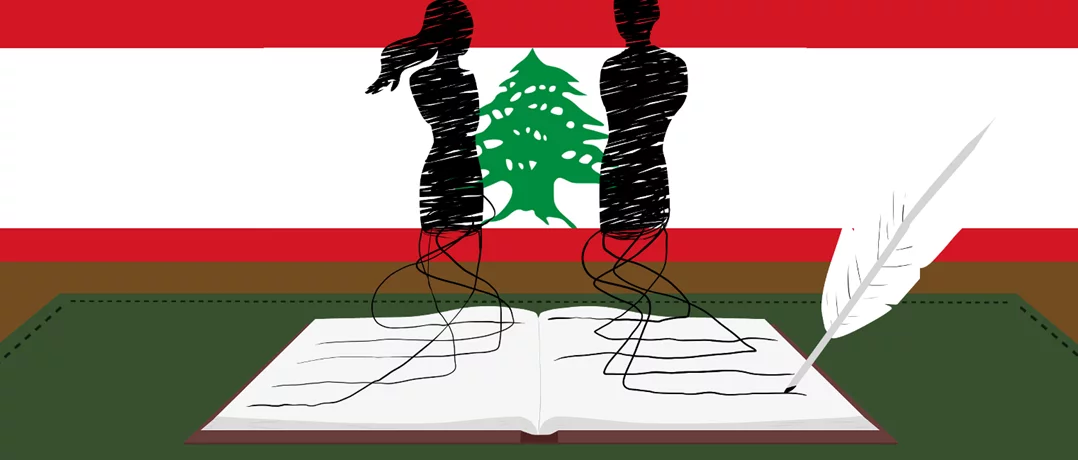Lebanon celebrates its Independence Day as one, yet its people remain divided, revealing a nation still without a shared history to truly unite them.
A nation written in many voices

As Lebanon’s Independence Day draws near, the country once again prepares for a familiar ritual. Flags start sprouting on streetlights and cars, schools rehearse the national anthem for the yearly ceremonies with students performing for their parents, and TV ads begin speaking about Lebanon and its greatness. Then, on the 22nd of November, for a single day, Lebanon forgets about its internal divisions and celebrates, as one people, the birth of the nation. But as soon as the day ends, the flags are taken down and replaced with festive Christmas decorations, school rehearsals shift to Christmas themes, and TV ads start talking about the magic of the season. And with it, Lebanon slips back into its familiar cycle of infighting and discord, forgetting that only a few days earlier everyone was celebrating as one.
All of this points to a deeper truth: Independence Day acts as nothing more than a temporal marker, a day where we celebrate a date and not a birth, a day where we remember the ritual and not the struggle of our forefathers, and a day that is forgotten as soon as the flags are gone. While in principle, this day should represent something far greater: the beginning of a shared history for all sects. Yet Lebanon has never built a unified national narrative around independence, not simply as a matter of disagreement, but rather owing to the fact that historical memory has developed separately within each community, producing distinct and sometimes incompatible accounts of Lebanon’s past.
These accounts are not merely historical disagreements, as they represent accounts of what Lebanon is and where it comes from. And from those answers a more crucial one emerges: to whom Lebanon ultimately belongs. Some see Lebanon as the continuation of the Phoenician empire, of Mediterranean stock and culture, while others, through a Pan-Arab lens, view it as an integral part of the Arab world. Some frame its history as one of Islamic struggle against foreign invaders, while others interpret Lebanon through a leftist lens, seeing only class struggle and anti-imperialism. And with each narrative comes an implicit claim to ownership: Lebanon as the legacy of its Christian communities and their ancient Mediterranean lineage; Lebanon as an Arab nation shaped by Sunni political currents and regional struggles; Lebanon as an Islamic project anchored in Shia resistance… All of these answers lack what Lebanon needs most today, a historical framework that understands Lebanon as belonging to its citizens collectively, rather than to the memory of any single community.
Yet this is easier said than done, for Lebanon’s national identity was not the foundation of the state, but a post-hoc narrative layered onto it after its formation. This was not a coincidence. Long before the idea of an independent Lebanon, identity in the country was shaped through the Ottoman millet system, which organized communities by religion rather than nationality. When France later established Greater Lebanon, instead of replacing these communal divisions, it built on them, reinforcing sectarian identities rather than developing a shared national one.
And while the independence of 1943 formalized sovereignty, it failed to produce a unified origin story. The civil war later capitalized on this absence, consolidating and militarizing pre-existing divides, with each sect constructing its own account of the war’s causes and consequences. This had important ramifications because the post-war era's lack of truth-seeking tools hindered the development of an official national narrative. A legacy that is still present in official school curricula, which portray Lebanese history as starting with the Mutasarrifiyya and abruptly ending before the civil war, as though the preceding centuries and the decades that followed never happened.
These conditions explain how Lebanon’s fragmented memory came to exist, but they do not address why this fragmentation matters. Shared history is important because nations need a common framework for people to understand themselves as members of the same political community, not because they need a single narrative. It also serves as the foundation for political legitimacy; when institutions are seen as the result of a shared history rather than the extension of a specific group, they are viewed as credible. Where no such framework exists, authority fragments and state roles are interpreted through communal lenses rather than national ones.
Shared history also provides the conditions for solidarity, giving collective action meaning beyond temporary interests. Without it, cooperation is contingent and dissolves once incentives shift. Finally, fragmented memory hinders conflict resolution, as each group interprets past violence through its own narrative rather than a shared account. A nation may tolerate multiple memories, but it requires a shared historical horizon.
Lebanon might not seem to be closer to a common historical narrative. Its institutions and collective memory are still disjointed. However, the forces reshaping the nation, such as the economic collapse, social decline, and mass migration, are not limited to any one community. They represent a shared historical moment, if not yet a shared historical narrative. If a common story does eventually emerge, it might come from the lived effects of a crisis that has affected almost every household rather than from settling long-standing identity conflicts. Sometimes nations are born out of perseverance rather than agreement.



